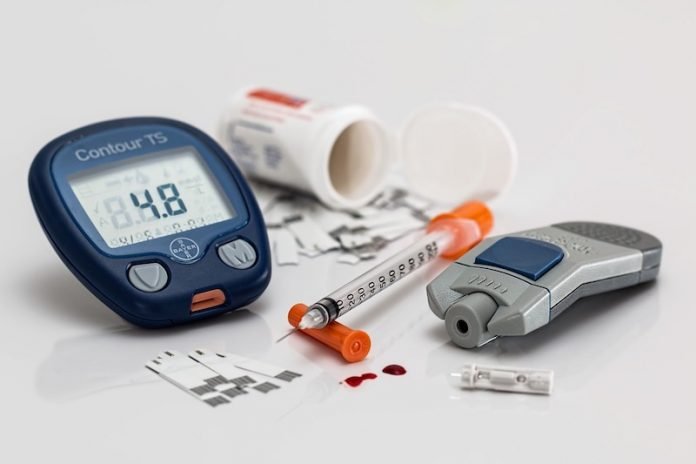
In a new study, researchers found a type of diabetes drug called SGLT2 inhibitors can reduce the risk of dialysis, transplantation, or death due to kidney disease in people with type 2 diabetes.
The research was conducted by a team from the University of Oxford.
The development of kidney failure is among the most important consequences of diabetic kidney disease, with profound impacts on patients and their caregivers.
Currently, more than 3 million people worldwide are estimated to be receiving treatment for kidney failure and that number is predicted to increase to more than 5 million by 2035.
SGLT2 inhibitors were developed to lower glucose levels for people with diabetes.
Early studies showed they reduced levels of protein in the urine leading to great hopes they would protect against kidney failure.
Since then, several large studies have been designed to examine whether SGLT2inhibitors prevented heart attack, stroke, and kidney disease.
In the study, the team conducted a meta-analysis, pooling data from major studies ofSGLT2 inhibitors that reported effects on kidney outcomes in people with type 2 diabetes.
Four studies involving almost 40,000 participants were included in the meta-analysis.
The team found SGLT2 inhibitors clearly and powerfully reduce the risk of kidney failure.
SGLT2 inhibitors reduced the risk of dialysis, transplantation, or death due to kidney disease by about 30%.
In addition, SGLT2 inhibitors also reduced the risk of kidney failure by 30% and reduced the risk of acute kidney injury by 25%.
The findings confirm those of the recently reported CREDENCE trial, where canagliflozin was shown to prevent loss of kidney function and kidney failure in people with type 2 diabetes.
These results provide further strong support for the key role of SGLT2 inhibition in kidney protection for people with diabetes today.
The lead author of the study is Dr. Brendon Neuen from The George Institute for Global Health.
The study is published in Lancet Diabetes and Endocrinology.
Copyright © 2019 Knowridge Science Report. All rights reserved.



